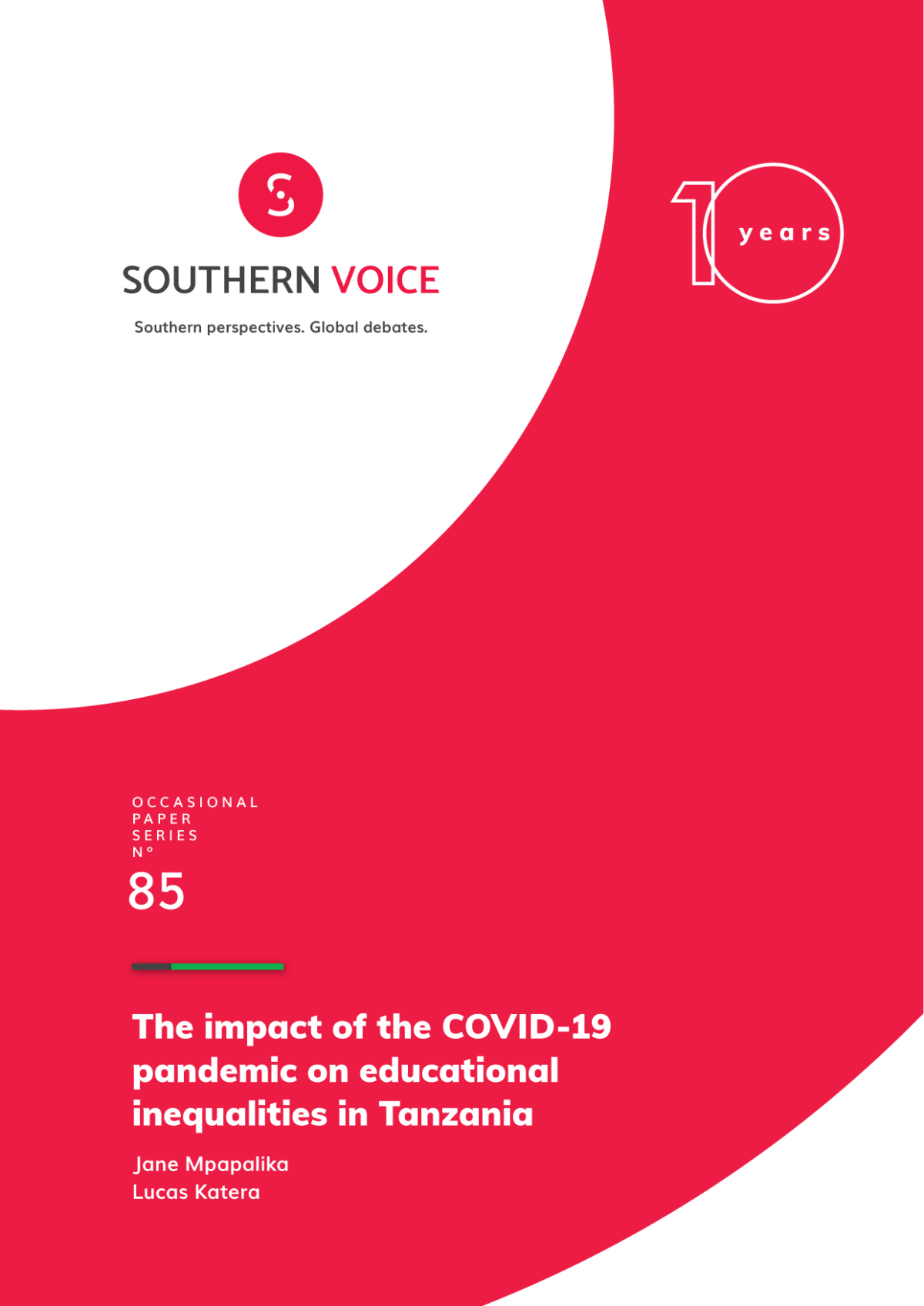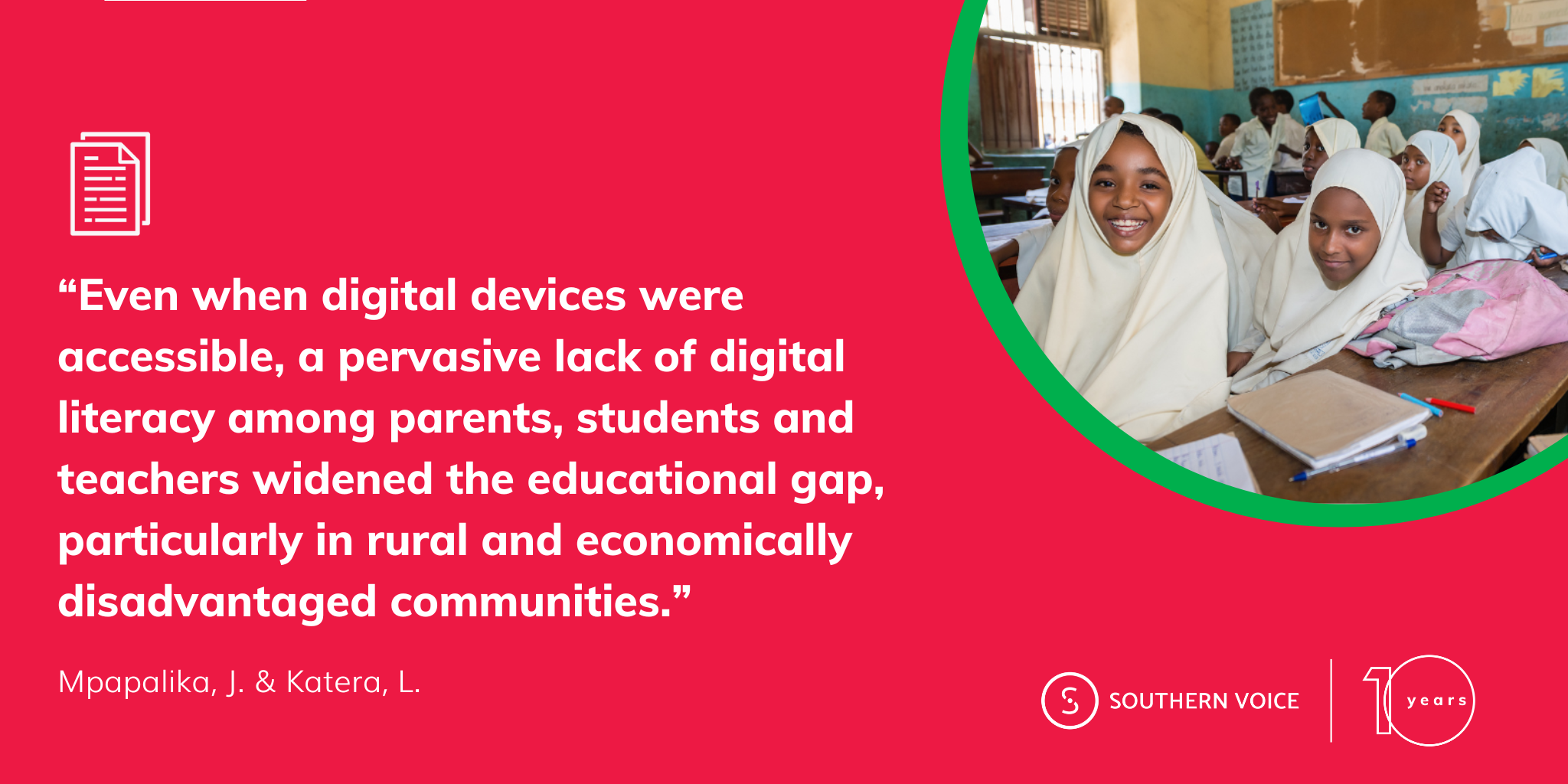Challenges brought on by the Covid-19 pandemic continue to have dangerous repercussions, especially for irregular migrants, non-professional migrants, and migrant…

This study examines the impact of COVID-19 on educational inequalities in primary schools in Tanzania, focusing on student enrolment and learning behaviour, teacher engagement, and the application of information and communications technology (ICT), in 26 primary schools. Despite government efforts to provide free education and reduce inequalities, disparities persist, particularly along rural-urban, socio-economic and gender lines. Moreover, the COVID-19 pandemic has exacerbated these inequalities through school closures and the reliance on technology-assisted teaching methods during lockdowns.
Using a mixed-method approach, primary data from focus group discussions with parents and key informant interviews with government officials and teachers were triangulated with secondary information from reports, national policies, and legislation. Further secondary data was sourced from the National Bureau of Statistics. The Gini Index was calculated to measure the level of educational inequalities in both the Dar es Salaam and Dodoma regions before, during and after COVID-19. Findings reveal that COVID-19 worsened educational inequalities, with poorer children having limited access to online learning.
The study highlights the need to involve stakeholders in policies addressing rural-urban and socio-economic disparities, and the need for investment in facilities, infrastructure, and teacher capacity. Incentives can attract teachers to rural areas and narrow outcome gaps, contributing to equitable education for Tanzanian children.


